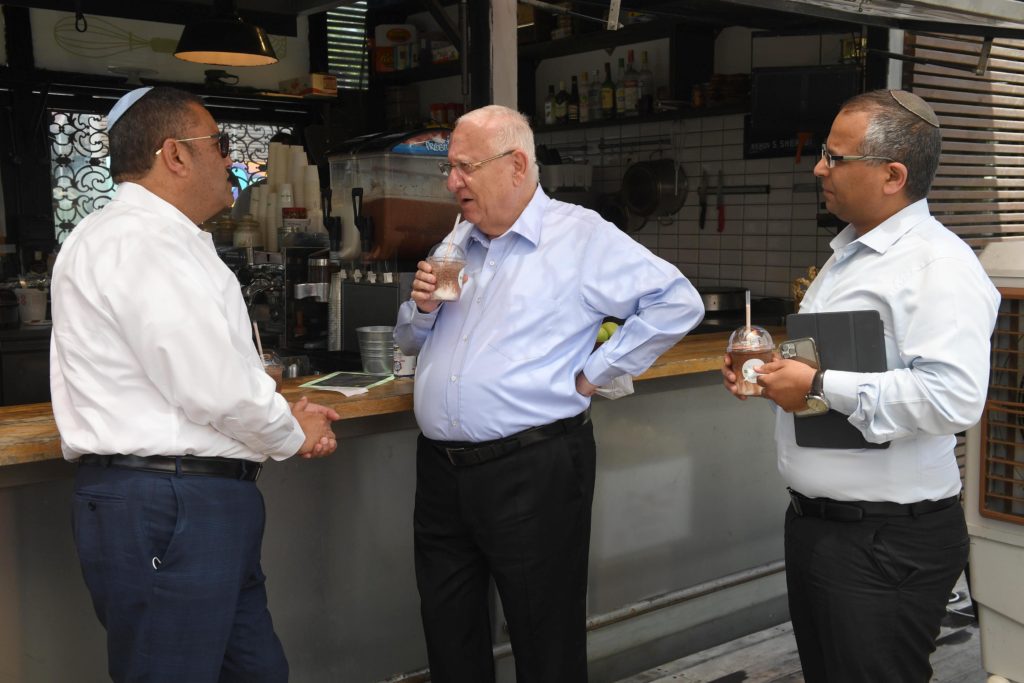
The current coronavirus crisis may be nearing the end in Israel, but the economic crisis caused by weeks and weeks of government-imposed shutdown in response to the virus is still raging. On Monday, Israeli President Reuven Rivlin and Jerusalem Mayor Moshe Lion spoke with business owners in Israel’s capital city, and the response published in an Israeli press release was mostly bleak.
For his part, Lion spoke of efforts by the City of Jerusalem to assist the businesses in the short-term, while Rivlin called for more to be done on a national level. One day later, Israeli Prime Minister Benjamin Netanyahu met with the new Finance Minister Israel Katz to discuss just that.
“Our suppliers continue to ask for their money and we have no way of paying them because the money has stopped. The suppliers have been waiting for two months… And all this comes before I find any money to buy groceries,” Noam Rizi, an owner of the Adom restaurant chain, was quoted in the press release as saying.
“I have colleagues with tears in their eyes. We give money to each other from the nothing we have, and it now doesn’t matter when we open. Give us an option to get through the crisis. I owe 50,000 NIS ($14,200) management fees for the premises here for the last two months. How? Where from?”
Restaurants would get some relief, according to Lion, who said that the Jerusalem Municipality would allow tables and chairs to be placed on sidewalks without the normal government fees, would make streets more pedestrian-friendly and would fund cultural activities to bring people to the area to shop.
“As a former accountant, I understand what businesspeople are going through,” Lion was quoted as saying. “…I see business owners like my own children.”
It’s more than just restaurants who are struggling. The entire tour guide profession in Israel is at risk, according to guide Gadi Dahan. “I don’t sleep at nights. Our profession is in jeopardy. Our tourists have gotten older in recent years and I am very worried that they won’t come. And everything stopped all at once and people have nothing to eat.”
However, not all is hopeless for the tour guide industry. Esther Sa’ad was quoted in the press release as describing her creative response to the coronavirus shutdown. “I posted my tours on Facebook. I take fewer people because of the restrictions but we go out all the time,” said Sa’ad, who noted the Jerusalem Municipality organized tours for Jerusalem Day. “…Even though we make less, we are working and it’s wonderful. My business has no expenses and if I go out to work, I earn.”
Meanwhile, Netanyahu and Finance Minister Katz met on Tuesday in their first working meeting since Katz was named to his new post. According to a press release from Netanyahu’s office, the meeting “focused on providing incentives for a return to work and restoring the economy to growth.” Katz is set to provide a final outline of a plan at another meeting later this week.
Rivlin, in comments posted in Monday’s press release, noted that Israel has a fully official government “at last” and called for the country to act to help businesses.
“The corona crisis has for some time now been more than a health crisis, with economic and social aspects. Behind every small business there is a big dream and whole lives. There are many Israelis whose livelihoods are under threat,” said Rivlin.
“…The country must come to the aid of small businesses. It is not just its moral obligation, it is also the key to the recovery of the economy as a whole.”
Rivlin and Lion didn’t just talk about helping business owners, they acted as well, grabbing ice coffee to go from a local café. It was more than a small purchase; it was a symbol of hope.
Said Rivlin, “Israel has faced stiffer challenges than this, and I am sure that we will be able to overcome this crisis too, its health and economic aspects.”
(By Joshua Spurlock, www.themideastupdate.com, May 19, 2020)
